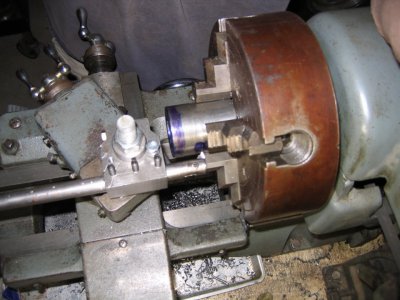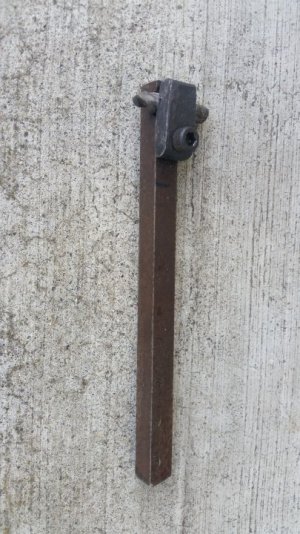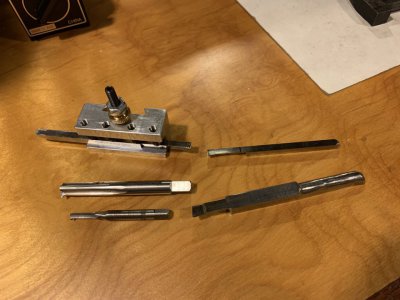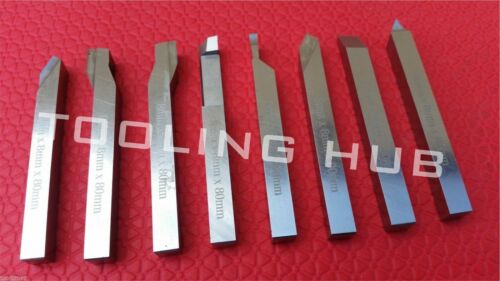- Joined
- Oct 31, 2016
- Messages
- 2,643
There are lots of threads on here about making a boring bar for HSS tool bits. There are also lots of You Tube videos on how to make one. Very simple to make. Turn a steel bar to whatever diameter you want. Or use square steel like the keyway stock you mentioned. A round bar is better than square because it will fit in a smaller hole. Then drill a hole at one end perpendicular to the bar and a hole at the other end at 45 degrees to the bar. Add a set screw to hold the tool bit. If you are using round HSS tool bits you are done. If using square tool bits you will need to file the hole to a square. Here is a picture of mine in it's holder on my lathe. What I am doing in this picture is placing the bar at the depth I want to bore to so I can set a carriage stop to that distance.






